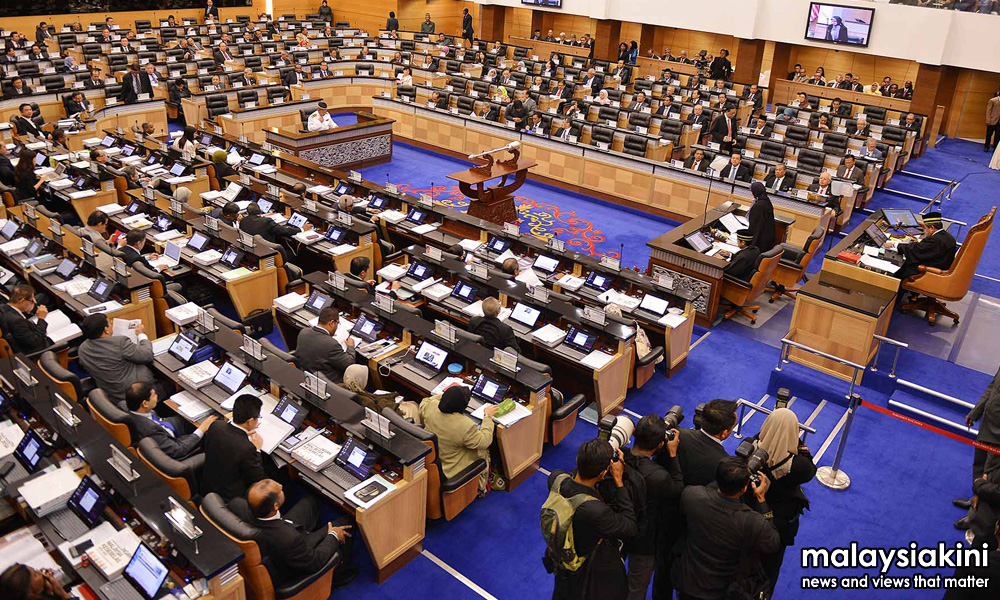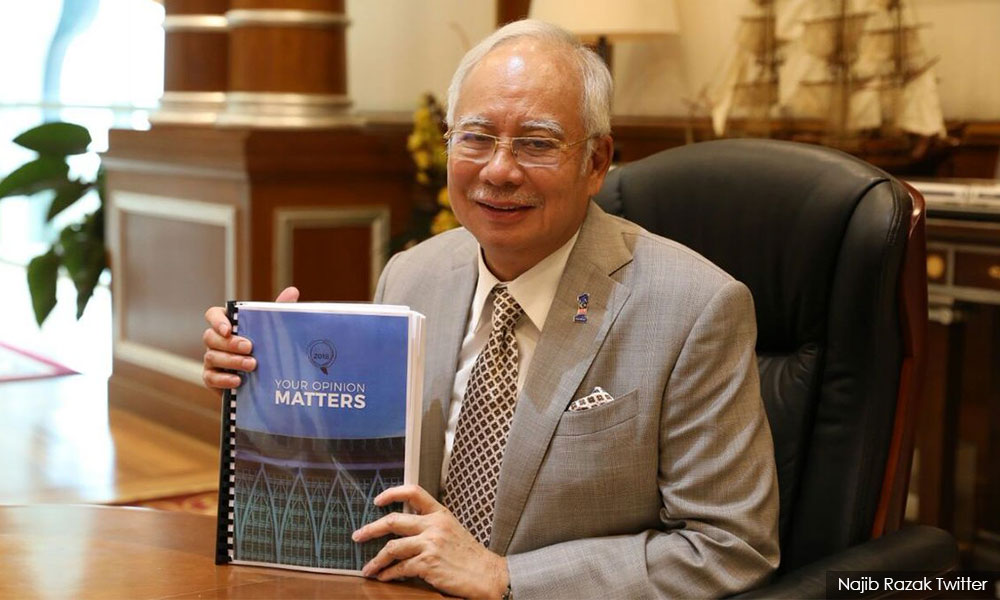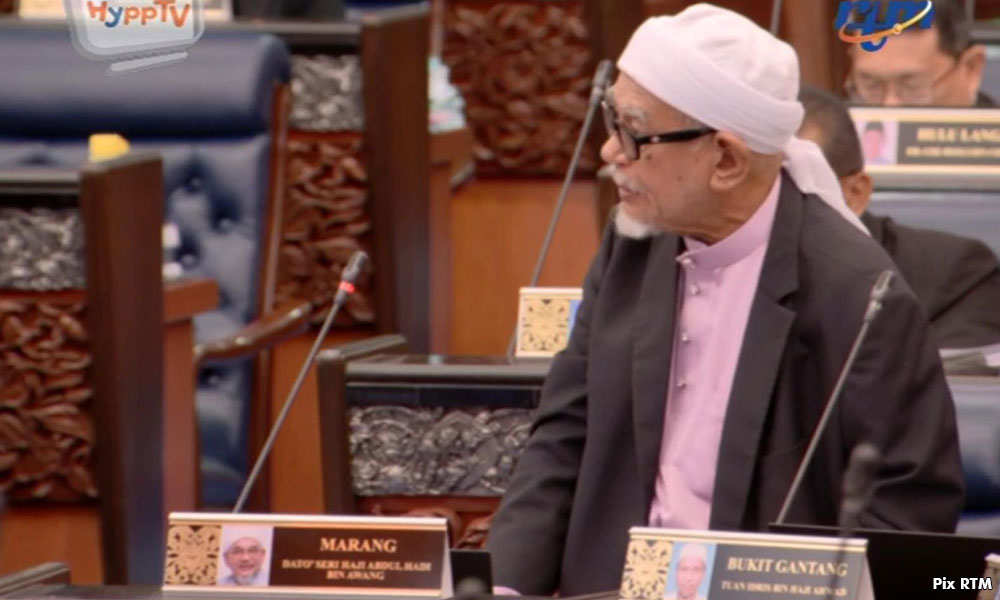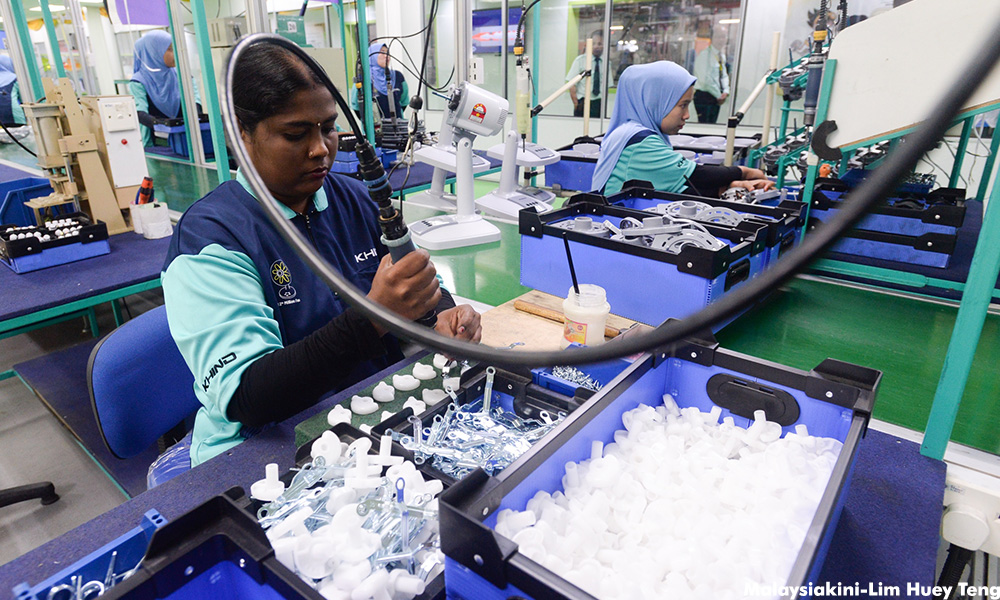
Tomorrow, MPs will gather at the Dewan Rakyat - possibly for the last round of sitting before the 14th general election.
It will be the 13th Parliament's third and last meeting of the fifth session, meaning that, barring exceptional circumstances that would warrant a special sitting, the House will not convene again until the next general election.
The full term of a Parliament comprises five sessions - one session a year - and each session typically comprises three meetings, with the exception of the first session after a general election, which can sometimes make up four meetings.
This last sitting, which takes place from Oct 23 to Nov 30, will also see Prime Minister Najib Abdul Razak table his last budget before he dissolves the House - or when it automatically dissolves in June.
Apart from the obvious - which is the Budget 2018, Malaysiakini takes a look at what other items are on the agenda in this last leg of sitting.
Budget 2018
The Budget 2018 will be tabled on Oct 27. Being a pre-election budget, it would only be natural to expect that the budget would be filled with goodies.
The main target groups would be those that form the ruling coalition's core support, such as East Malaysian voters, civil servants, Felda settlers and rural dwellers who are typically in constituencies that have a disproportionately high electoral weightage.
Najib has also indicated that he intends to re-capture the thirds-majority in the 14th general election, which would also require him to appeal to the wider middle class.
Issues such as the cost of living and affordable housing are expected to receive attention.

Beyond the electioneering, Budget 2018 will also be an indication of how Putrajaya expects the state of the Malaysian economy to be going forward.
Due to a revenue crunch, Najib had, for two consecutive years, tabled a contracting budget.
In 2015, the government budgeted a total of RM273.9 billion. This shrank to RM267.2 billion in Budget 2016 and shrank again in Budget 2017 to RM262.8 billion.
It was the only two times that the budget had contracted under Najib's leadership.
Act 355 amendment
PAS president Abdul Hadi Awang's Private Member's Bill motion is again at the top of the list of non-government items.

The motion is to seek leave to table Hadi’s motion to amend the Syariah Courts (Criminal Jurisdiction) Act 1965, also known as Act 355.
The proposed amendment seeks to increase the current punishment that can be meted out by syariah courts from three years’ imprisonment, RM5,000 fine and six strokes of the rotan to 10 years’ imprisonment, RM100,000 fine and 100 strokes of the rotan.
Hadi (photo), who is also Marang MP, had in the first meeting of the fifth Parliament session in April, tabled the motion and was seconded by PAS secretary-general Takiyuddin Hassan, who is Kota Baru MP.
There appear to be differing opinions in PAS on how to move forward, with PAS Ulama chief Mahfodz Mohamed suggesting that the motion be postponed until after the general election.
Mahfodz reasoned that there was not enough support in Parliament at present and this would change after the general election if PAS could pick up more seats.
However, Takiyuddin has indicated PAS' intention to move ahead with the motion.
If it is allowed to proceed, the motion is expected to immediately enter the debate stage, which will require the various parties to formally state their stance on this hot potato issue.
However, it still depends on whether BN will allow this to move ahead as government matters will always take precedent over non-government ones.
Employment Insurance System (EIS)
The Employment Insurance System Bill 2017 was tabled during the second meeting of the fifth session in August.

The initial bill, if passed, would require an employee to contribute 0.5 percent of his or her wage to a fund. Employers are also required to contribute a matching 0.5 percent.
The fund is intended to act as a safety net for retrenched workers, who will be able to draw allowances from the fund for a certain number of months.
However, the proposed law saw fierce objections from employers, prompting the government to defer the bill to the current sitting.
Human Resources Minister Richard Riot indicated that there has been consensus to reduce the contribution rate to 0.2 percent on the employees' and employers' sides respectively and this would likely be reflected in the updated bill.
Other bills
Apart from Budget 2018, only one other new bill will be introduced in the current sitting, namely the Malaysian Maritime Enforcement Agency (Amendment) Bill 2017.
The other items on the list are a continuation from the previous sitting.
These include the Malaysian Aviation Commission (Amendment) Bill 2017, Intellectual Property Corporation of Malaysia (Amendment) Bill 2017 and the Stamp Act (Amendment) Bill 2017.
However, the government may, at any time during the sitting, introduce new bills.- Mkini


No comments:
Post a Comment
Note: Only a member of this blog may post a comment.